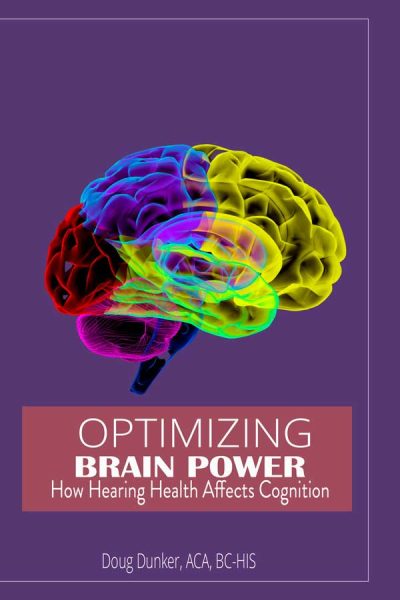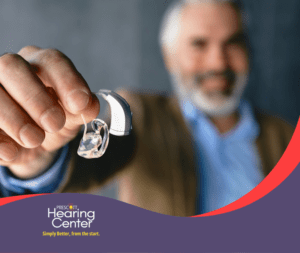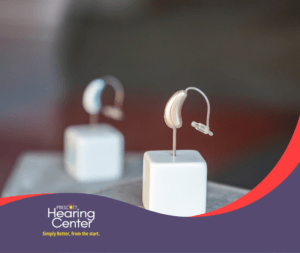Hearing Loss and Its Impact on Your Life: Insights from Prescott Hearing Center
Hearing loss is a widespread yet often under recognized condition that affects millions of people. At Prescott Hearing Center, we’re dedicated to educating our community about how hearing loss can shape your daily life, relationships, and overall well-being. In this blog, we’ll explore the effects of hearing loss and provide actionable steps to address it, helping you reclaim your hearing health. What Is Hearing Loss? Hearing loss is a reduction in the ability to hear sounds, ranging from mild challenges to profound deafness. It can stem from aging, prolonged exposure to loud noises, genetics, ear infections, or other health conditions. The National Institute on Deafness and Other Communication Disorders (NIDCD) estimates that approximately 15% of American adults aged 18 and older report some trouble hearing. How Hearing Loss Affects Your Life The impact of hearing loss goes beyond the ears, touching many aspects of your life. Here’s how: Communication Challenges Struggling to hear conversations can lead to misunderstandings and frustration. You might find it hard to follow discussions in noisy settings, miss critical details, or ask others to repeat themselves often. A study in the Journal of the American Geriatrics Society linked untreated hearing loss to social isolation, as people may avoid conversations to sidestep embarrassment (Weinstein & Ventry, 1982). Emotional and Mental Health Coping with hearing loss can strain your emotional well-being. The NIDCD notes that untreated hearing loss is associated with higher rates of anxiety, depression, and loneliness. The constant effort to decipher sounds can also cause mental fatigue, diminishing your quality of life. Cognitive Decline Research points to a connection between hearing loss and cognitive challenges. A 2013 study by Dr. Frank Lin at Johns Hopkins University revealed that people with moderate to severe hearing loss face a 2-5 times greater risk of developing dementia compared to those with normal hearing (Lin et al., 2013). This may be due to the brain working harder to process sounds, leaving fewer resources for memory and thinking. Impact on Relationships Hearing loss affects not just you but also your loved ones. Family and friends may feel frustrated or disconnected when communication falters, straining bonds and fostering feelings of isolation for everyone involved. Work and Daily Activities At work, hearing loss can reduce productivity, hinder teamwork, and compromise safety if instructions or alerts are missed. Everyday tasks—enjoying music, watching TV, or hearing the phone—can become challenging and frustrating. Taking Action: Solutions and Support The good news is that hearing loss is manageable, and early action can transform your life. At Prescott Hearing Center, we offer tailored solutions to help you hear better: Hearing Tests: Our hearing providers use advanced tools to evaluate your hearing and determine the type and extent of loss. Hearing Aids: Today’s hearing aids are sleek, effective, and personalized, amplifying sound and enhancing clarity to reconnect you with your world. Lifestyle Adjustments: We share strategies like facing speakers directly and minimizing background noise to improve communication. Support and Education: Our team guides you and your family, providing resources and support for the journey ahead. Why Act Now? Left unaddressed, hearing loss can worsen, intensifying its effects. Research from the NIDCD shows that timely use of hearing aids or other devices can boost communication, social engagement, and mental well-being. Don’t delay—your quality of life matters. Resources for More Information National Institute on Deafness and Other Communication Disorders (NIDCD) – Explore causes, treatments, and research on hearing loss. Hearing Loss Association of America (HLAA) – Find support, tips, and community resources. Prescott Hearing Center – Schedule a consultation or learn about our services. Conclusion Hearing loss can deeply affect communication, emotions, relationships, and cognitive health, but you don’t have to navigate it alone. At Prescott Hearing Center, we’re here to help you hear better and live better. If you or a loved one notices signs of hearing loss—trouble following conversations, ringing in the ears, or cranking up the TV volume—contact us today. Schedule a hearing test and take the first step toward a more connected, fulfilling life. Citations Lin, F. R., et al. (2013). Hearing loss and cognitive decline in older adults. JAMA Internal Medicine, 173(4), 293-299. Weinstein, B. E., & Ventry, I. M. (1982). Hearing impairment and social isolation in the elderly. Journal of the American Geriatrics Society, 30(12), 753-758. National Institute on Deafness and Other Communication Disorders. (n.d.). Quick statistics about hearing. Retrieved from https://www.nidcd.nih.gov/health/statistics/quick-statistics-hearing









